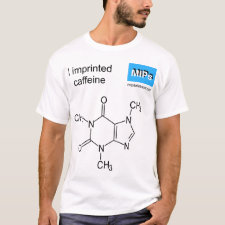
Authors: Oliveira D, Freitas A, Kadhirvel P, Dias RCS, Costa MRPF
Article Title: Development of high performance and facile to pack molecularly imprinted particles for aqueous applications.
Publication date: 2016
Journal: Biochemical Engineering Journal
Volume: 111
Page numbers: 87-99.
DOI: 10.1016/j.bej.2016.03.009
Alternative URL: http://www.sciencedirect.com/science/article/pii/S1369703X16300808
Abstract: Different kinds of molecularly imprinted particles were synthesized and compared, aiming at the development of materials combining high molecular recognition capabilities and facile use as column packing materials for chromatographic aqueous applications. Solution, inverse-suspension and precipitation polymerization were considered and two different model molecules (5-fluorouracil and caffeine) were used to highlight the effect of the interaction between the template molecule and the functional monomer on imprinting efficiency. Particles synthesized through the proposed inverse-suspension process exhibit facile use for packing columns, allow the stable running of chromatographic systems and present a high performance in drug uptake and release in aqueous media. Frontal analysis measurements highlight these key features of the synthesized particles. Drug sorption capabilities of 0.890 μmol/g and 5.774 μmol/g were measured for 5-fluorouracil and caffeine, respectively, using frontal analysis with eluents containing the target molecules at concentration 0.1 mM. Due to the lower amount of solvent required than with precipitation polymerization, the developed inverse-suspension process presents high synthesis yields, which can be exploited for the large-scale manufacture and commercialization of molecularly imprinted materials. The combined features of the particles makes possible their direct use in bioseparations or in the development of assays and pharmacokinetic studies concerning the presence of drugs in biological fluids
Template and target information: 5-fluorouracil, caffeine
Author keywords: molecular imprinting, Biomedical, adsorption, chromatography, frontal analysis, Drug release



Join the Society for Molecular Imprinting

New items RSS feed
Sign-up for e-mail updates:
Choose between receiving an occasional newsletter or more frequent e-mail alerts.
Click here to go to the sign-up page.
Is your name elemental or peptidic? Enter your name and find out by clicking either of the buttons below!
Other products you may like:
 MIPdatabase
MIPdatabase









